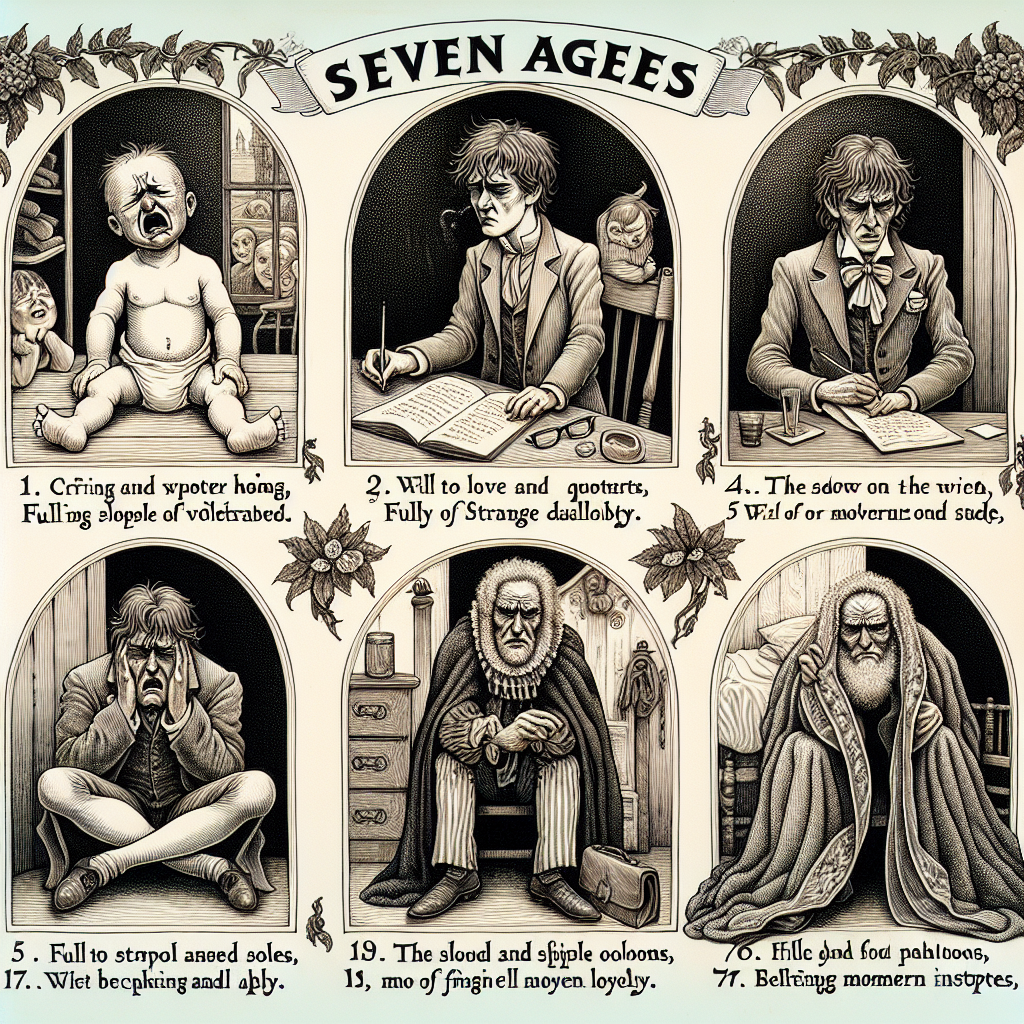Summary of Shakespeare’s poem Seven Ages
In “The Seven Ages of Man,” a monologue from William Shakespeare’s play “As You Like It,” the speaker, Jaques, reflects on the different stages of a man’s life, illustrating how people evolve from infancy to old age. Here is a detailed summary of each stage and its traits:
1. Infancy: This first stage is characterized by helplessness and dependency. The infant is a bundle of needs, crying for attention and nourishment. It represents a time of vulnerability and innocence.
2. Childhood/ Schoolboy : The second stage sees the child growing into a playful and carefree individual. This phase is marked by learning, exploration, and the innocence of youth. The schoolboy cries and isn’t willing to go to school and creeps like a snail,carries a shining morning face
3. The Lover: In this stage, typically associated with young adulthood, the individual becomes passionate and imaginative. This is the time of romantic feelings and infatuations, where love poetry is expressed, and emotions run high. The lover is often depicted as being overly idealistic and somewhat foolish in the pursuit of affection.
4. The Soldier :This age represents the ambitious young adult who seeks honor and reputation through valor. The soldier is rash and daring, driven by a desire for conquest and glory. This phase showcases the traits of aggression, pride, and the willingness to engage in battles, sometimes without foresight.
5. The Justice : In this stage, typically associated with middle age, the individual becomes wise and authoritative. As a figure of reason, the justice reflects maturity, experience, and a sense of responsibility. This period involves a transition to stability, often with a focus on societal roles and contributing to the community.
6. Old Age : Here, the person enters a phase marked by physical decline and reflection. The traits of this stage include frailty, wisdom, and a sense of detachment from worldly matters. The individual often becomes forgetful and less engaged with the vibrancy of life, signaling the inevitable approach of death.
7. Second Childhood : The final stage returns to the characteristics of infancy, portraying a complete reversal of independence. The elderly person may lose their faculties, becoming dependent again, which emphasizes the cycle of life. This stage is imbued with a sense of nostalgia and the awareness of mortality.
Overall, Shakespeare captures the human experience in all its complexity through these seven stages, portraying a life that is vibrant, varied, and ultimately transient.




Post Comment